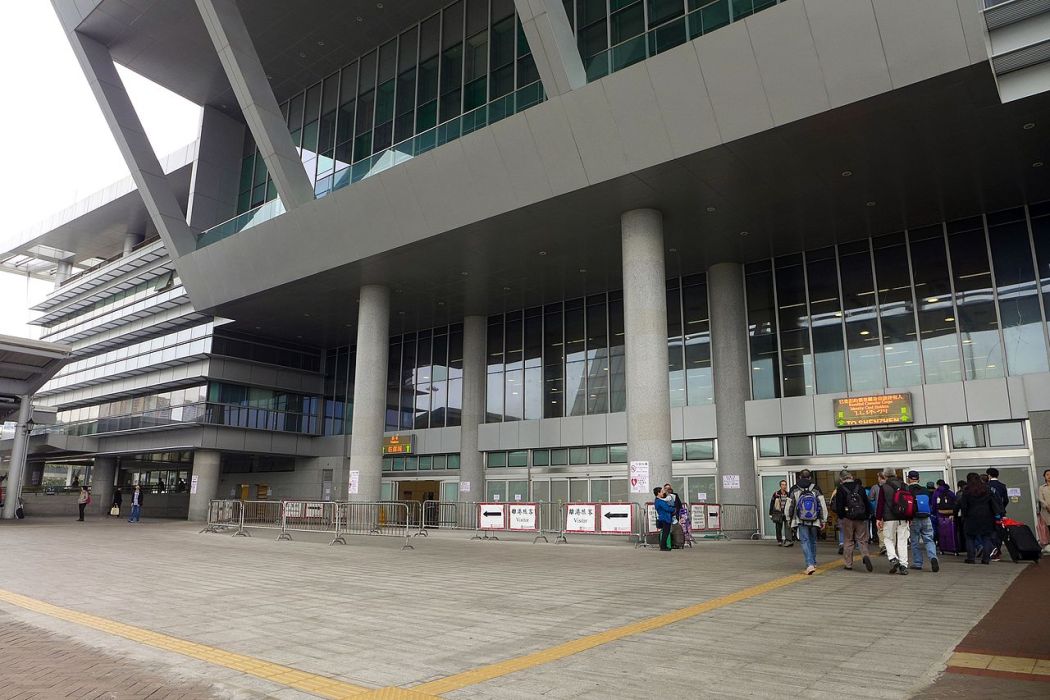Hong Kong lawmakers have called on Chief Executive John Lee to outline a path to normalcy amid Covid-19, attract talent to the city and address long-standing livelihood issues in his first policy address next month.

Speaking to reporters on Tuesday, lawmakers from pro-Beijing party the Democratic Alliance for the Betterment and Progress of Hong Kong (DAB) said they hoped Lee could share a “roadmap” for reopening its borders both internationally and with mainland China.
“We hope the chief executive implements the ‘0+7’ [arrangement] as soon as possible,” Starry Lee, chairperson of the DAB, said.
The arrangement refers to scrapping the three-night Covid-19 hotel quarantine requirement for arrivals and replacing it with seven days of “medical surveillance” at home, whereby people can still go to work but are barred from visiting certain places including restaurants.
John Lee told reporters on Tuesday morning that he would announce changes to the Covid-19 hotel quarantine measures “as soon as possible,” but did not say when. Health secretary Lo Chung-mau said on Saturday that the government was “considering” rolling out a 0+7 arrangement.

“Of course, 0+7 is only a halfway point,” Starry Lee said. “Under the right conditions, Hong Kong needs to be more connected and aligned with the world.”
The party held its press conference after DAB lawmakers met with John Lee, who was elected to the city’s top leadership post in an uncontested race in May, to share their suggestions ahead of his first policy address on October 19.
The speech is delivered annually by the city’s leader and outlines the policy agenda for the coming years.
As for reopening with the mainland, Starry Lee said the party hoped the administration would engage in talks with authorities across the border to increase the quota for Hong Kong people going to the mainland.
Currently, the number of Hongkongers who can travel to Shenzhen is capped at 1,000 daily.
Earlier, the government said it was looking to implement a “reverse quarantine” system, whereby travellers would be able to undergo quarantine in Hong Kong before going to the mainland due to a limited number of quarantine facilities across the border.

“We hope the government can work this out as soon as possible,” Starry Lee said, adding that there were many Hong Kong people who wanted to go to mainland China to visit relatives and for work.
Tik Chi-yuen, Hong Kong’s only lawmaker who does not identify as pro-establishment, said he also looked forward to John Lee announcing policies that would move Hong Kong towards business as usual.
“We hope he has specific principles, conditions and a timetable [for the relevant policies] so Hong Kong can return to normal, so Hongkongers can resume their normal lives,” he told reporters on Tuesday evening.
Attract talent, develop ties with Southeast Asia
The DAB also said it hoped John Lee would entice more people to come to Hong Kong and contribute to the city’s development.
“This is an era in which countries are fighting to attract talent,” Starry Lee said. “Governments are using different policies… to recruit companies and highly skilled people.”
“Hong Kong needs to think out of the box and have a more open attitude [towards attracting talent],” she said, adding that the city could consider offering tax breaks or more schooling options for the children of professionals.

Her comment came as Hong Kong is experiencing a brain drain that many have attributed to the city’s strict Covid-19 policies.
Lee said also that the government should develop closer relations with countries under the Association of Southeast Asian Nations (ASEAN). DAB lawmakers have recently returned from trips to Indonesia, Vietnam, Thailand, Malaysia and Singapore, holding over 50 meetings or events with local entrepreneurs and professionals, according to the party’s Facebook page.
ASEAN countries and Hong Kong share the advantage of [geographic proximity], and they also have similar cultures,” Starry Lee said. “We hope the SAR government will really think about how to tap into the ASEAN market and drive development.”
Livelihood and politics
Beyond a return to normalcy, Tik said he hoped John Lee would address the city’s long-standing livelihood issues.
In a booklet containing suggestions for Lee given to reporters, Third Side – the political party Tik chairs – urged the city’s leader to increase the number of spots in care facilities for the elderly and the disabled.
“The waiting time for subsidised facilities is 41 months (three years and five months) on average, placing a lot of pressure on [the elderly] in line and their family members,” the booklet read, adding that there were cases of people passing away while waiting.

Third Side also suggested restructuring the staffing framework at residential homes to tackle the shortage of nurses and the lack of career advancement opportunities for frontline workers.
Regarding politics, the party said the government should “create conditions” to pave the way for universal suffrage for both the chief executive and legislative elections.
Hong Kong should also retain the current district council elections system, in which representatives are directly elected by residents, the centrist party said.
Ahead of the policy address next month, the government will hold around 30 consultation sessions to “listen to views and suggestions” of lawmakers, industry representatives and the public, according to authorities.
Support HKFP | Policies & Ethics | Error/typo? | Contact Us | Newsletter | Transparency & Annual Report | Apps
Help safeguard press freedom & keep HKFP free for all readers by supporting our team

LATEST FROM HKFP
HKFP has an impartial stance, transparent funding, and balanced coverage guided by an Ethics Code and Corrections Policy.
Support press freedom & help us surpass 1,000 monthly Patrons: 100% independent, governed by an ethics code & not-for-profit.










